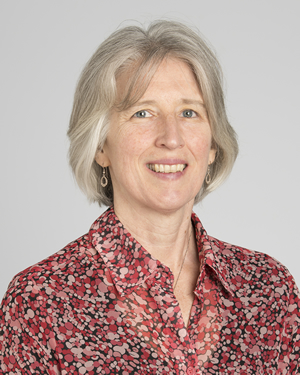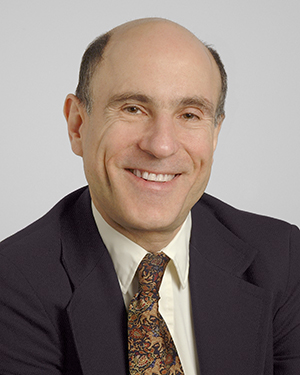Research News
10/12/2018
Musculoskeletal Research Center Co-Director Receives $6M NIH Grant for ACL Surgery Research
The new grant supports a multi-center, randomized clinical trial exploring a new surgical technique, Bridge-Enhanced® ACL Repair (BEAR®).

- Kurt Spindler, MD, co-director of Cleveland Clinic’s Musculoskeletal Research Center, was awarded a five-year, $6 million grant from the National Institute of Arthritis and Musculoskeletal and Skin Diseases to study techniques used for anterior cruciate ligament (ACL) reconstruction.
The new grant builds upon Dr. Spindler’s work leading the Multicenter Orthopaedic Outcomes Network (MOON) for ACL reconstruction. It will support a multi-center, randomized clinical trial aimed at determining if outcomes of a new surgical technique, Bridge-Enhanced® ACL Repair (BEAR®), are equal to or better than outcomes of traditional ACL reconstruction surgery. The Cleveland Clinic-led research will coordinate a consortium of five sites involved in this BEAR MOON trial. Other sites include The Ohio State University, Washington University St. Louis, Vanderbilt University, and Rhode Island Hospital (Brown University).
The current gold standard surgical treatment—autograft ACL reconstruction—stabilizes the knee, but has a number of drawbacks.
“The current standard for ACL surgery is a complex reconstruction procedure that has a high rate of success in terms of return to sports and activities of daily living. But the failure rate is high in adolescents.” Dr. Spindler said. “There is some graft site morbidity and the propensity to develop early posttraumatic osteoarthritis (PTOA) is not prevented.”
This research will also build upon prior studies led by Martha Murray, MD, at Boston Children’s Hospital, that showed the BEAR technique to have similar results to ACL reconstruction in preclinical and early clinical studies.
“In the BEAR procedure, we are not just stitching the ACL together,” Dr. Spindler said. “The magic, the key to making it work, is the scaffold.”
The BEAR procedure begins with drilling small tunnels in order to place a suture into the ACL fibers and to stabilize the knee. The tissue-engineered scaffold, invented by Dr. Murray, is implanted through a small incision in the knee. Surgeons then pull the stitched ACL tibial stump into the scaffold as the knee is extended. The patient’s own blood is applied to the scaffold to provide growth factors and stimulate healing. Patients are expected to return to normal activities in a few months and to sports in about nine months, Dr. Spindler notes.
Through this grant, the team will enroll 200 participants who are between 18 and 40 years of age and have complete ACL tears. Surgery will need to take place within 50 days of injury. The primary goal of the study is to evaluate the outcomes of Bridge-Enhanced ACL Repair procedure versus the standard autograft patellar tendon reconstruction at six months, one year and two years after surgery. Researchers expect earlier improved range of motion and knee kinematics in the short-term and no graft harvest morbidity for the patients treated with Bridge-Enhanced ACL Repair. The BEAR implant is an investigational device and it is only available in FDA approved clinical trials.
“Our goal in this trial is to see if we can duplicate the earlier single-center study results on a multicenter and multisurgeon level,” Dr. Spindler said. “The findings from this trial will hopefully help to change the standard clinical practice of ACL surgery.”
Biostatisticians Peter Imrey, PhD, and Gerald Beck, PhD, both of the Department of Quantitative Health Sciences in the Lerner Research Institute, are co-investigators and are providing critical study design and data analytic collaboration for the study.
Ellen McErlean, MSN, RN, FAHA, is coordinating this study. Contact her at [email protected].
This research is supported by the National Institute of Arthritis and Musculoskeletal and Skin Diseases, National Institutes of Health, under award number R01AR074131.
Story adapted from Cleveland Clinic Newsroom.
Featured Experts
News Category
Related News
Want To Support Ground-Breaking Research at Cleveland Clinic?
Discover how you can help Cleveland Clinic save lives and continue to lead the transformation of healthcare.
Give to Cleveland Clinic

